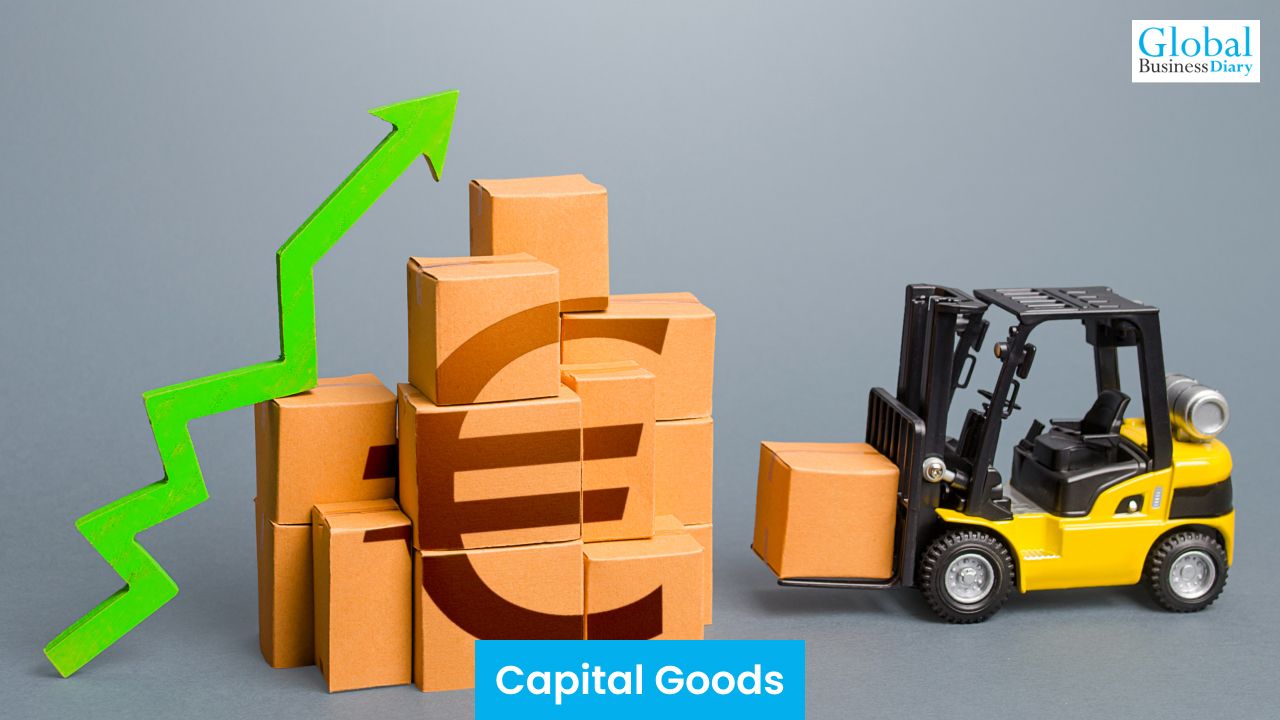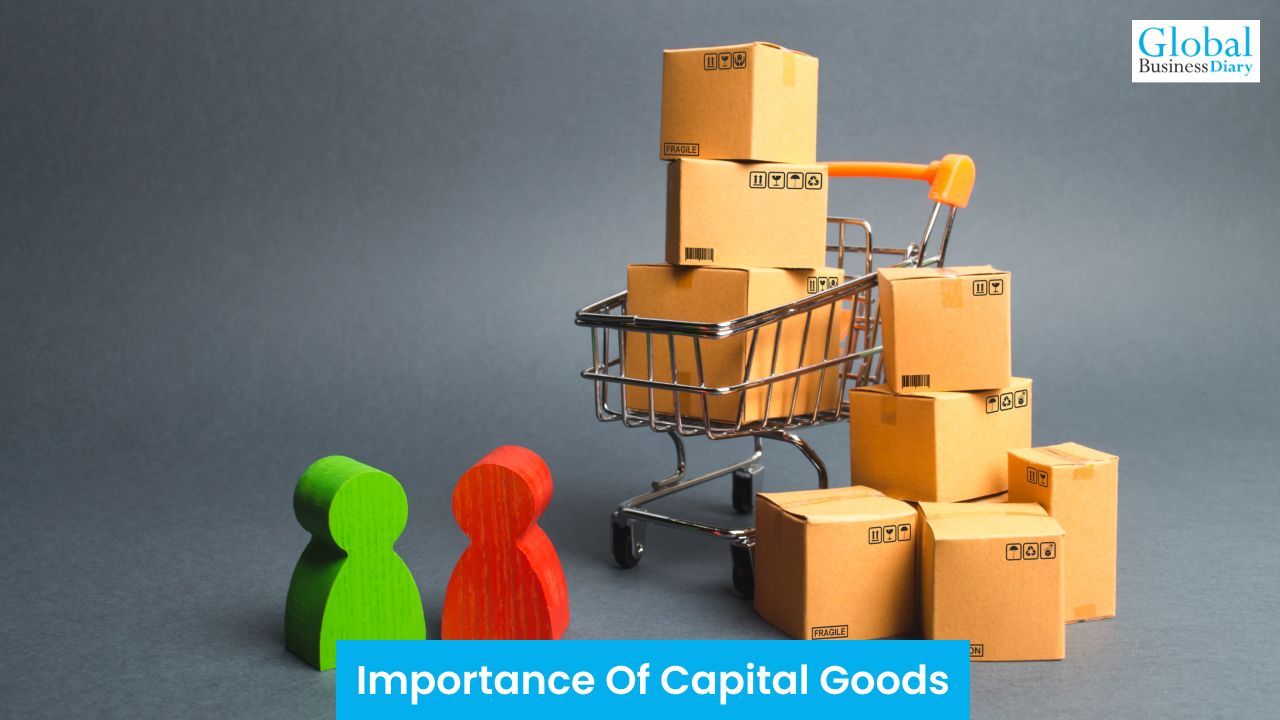Importance Of Capital Goods – What Role Does It Play In The Industry?

Do you want to know whether the Capital Goods are the future or a threat to future investment? If yes, you have to understand the reality of Capital goods before drawing any conclusion over it.
You must know some of the fundamental aspects of Capital goods before understanding their functions and importance in the Industry. Without knowing the basics, you cannot draw any conclusions about it.
Without an adequate supply of Capital goods, Industry cannot grow on the right track. Therefore, you must possess the correct amount of capital goods to increase the chances of your business growth.
What Are Capital Goods?
The physical assets of a company that is used in the process of production by a company are known as Capital goods. The consumers will use all these products and services produced by the company using these goods.
Different forms of capital goods are equipment, machinery, tools, and buildings. Most importantly, they are not finished products; instead, they are used to prepare them.
Importance Of Capital Goods
Capital plays a vital role in the modern productive system. Without the use of Capital, you cannot be able to run your business successfully. Therefore, every essential aspect of your business is dependent on the application of capital goods.
Also Check: Canned Packaged Goods: Everything You Need To Know
1. It Is Essential For Production
Without capital, the production of goods and services is hard to imagine. However, nature cannot provide you with all the furnished goods and services to human beings.
Machinery for farming, mining, forestry, and ashing can make things easier and more effective for your production process. However, if a man has to work with his bare hand for agriculture, then productivity will be low.
Even in the primitive age, the application of the tools was there for plowing the agricultural field. In the modern age, the application of sophisticated machines has made people’s lives more accessible and has increased the rate of efficiency.
2. Enhances The Productivity
With the enhancement of technology and specialization, the application of capital goods has become much more important than before. Therefore, within a limited time, more goods can be produced.
It’s like machinery has made the life of the people easier today. In addition, extensive use of capital has made the USA one of the strongest economies in the world due to the high productivity rate.
Many developed countries of the world today are primarily dependent on Capital Goods. So you have to make your choices in the correct direction while improving your business.
3. Importance For Economic Development
In the process of economic development, capital occupies a central role. This is because the core of economic growth is capital accumulation.
A country’s economic development is solely responsible for the usage of capital goods. Roads, railways, airports, harbors, and other essential facilities we use today are part of the capital.
Economies of the USA, Russia, And China are developed because they have a high amount of capital to build their economy. Without the application of Capital goods, no economy can flourish in the long run.
4. Creates Employment Opportunity
One of the vital roles of Capital goods is creating employment opportunities in any country. Therefore, creating employment opportunities in a country increases when you use Capital goods. Therefore, employment generation is the actual cause for which its use is crucial.
It creates the employment opportunity in two ways or, better to say, in two stages-
- Firstly it creates employment opportunities when workers are hired to produce the machinery, which will help construct dams, roads, and railways.
- Secondly, workers will be required to handle the machinery for producing the finished products using the capital goods.
Many factories will crop up in completing the dam projects, and many people will get employment opportunities.
Thus, the capital formation can increase the chances of employment generation in a nation. First, however, you have to understand the ways before using capital goods to develop your nation’s economy.
5. Helps To Convert Raw Materials Into Finished Products
No factories in the world can flourish only with adequate raw material. The sales of an organization will increase when with the help of machinery, a company’s raw materials will be converted into finished goods.
Only by selling the finished goods, the asset side of the balance sheet shows a better figure for the organization. Therefore, the profitability of an organization is heavily dependent on the use of Capital goods.
You have to understand the co-relation between Capital goods and their usage in modern-day business. Then, proper planning with the help of adequate execution can make things simpler for your organization.
Also Read: Boxed Packaged Goods: The right Guide To uplift Your Business
Functions Of Capital Goods
There are several functions of Capital goods that many of us are not aware of in the correct order. Some of them are as follows:-
- It ensures an adequate supply of raw materials for your business.
- The supply of appliances and heavy machinery can help you increase your production level.
- Capital goods provide the means of subsistence to the workers.
- You can enjoy the provision for transportation like Railways, motor trucks to make the supply of your products and services smoother.
- Employment creation and employment generation for the workers increase when you use capital goods.
Thus, capital goods form a vital part of the economy that you cannot ignore at your end. You have to admit the importance of Capital goods in your life. Developed countries of the world have focussed on Capital formation first to develop their economy.
Final Take Away
Without applying capital goods, no economy can prosper in the long run. Therefore, developed economies of the world make extensive use of the capital to improve their economy to the next level.
You can share your comments and opinions if you feel that my opinion is correct. For example, today, the demand for Capital goods has increased due to increased orders.
If your company has a higher capital margin, then the chances of the growth of your organization increase. You have to understand the facts before deciding to invest in Capital goods.
More Resources:















